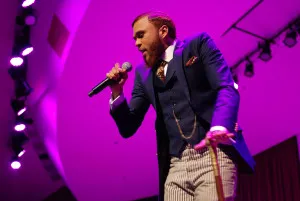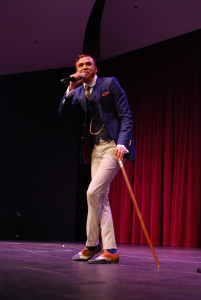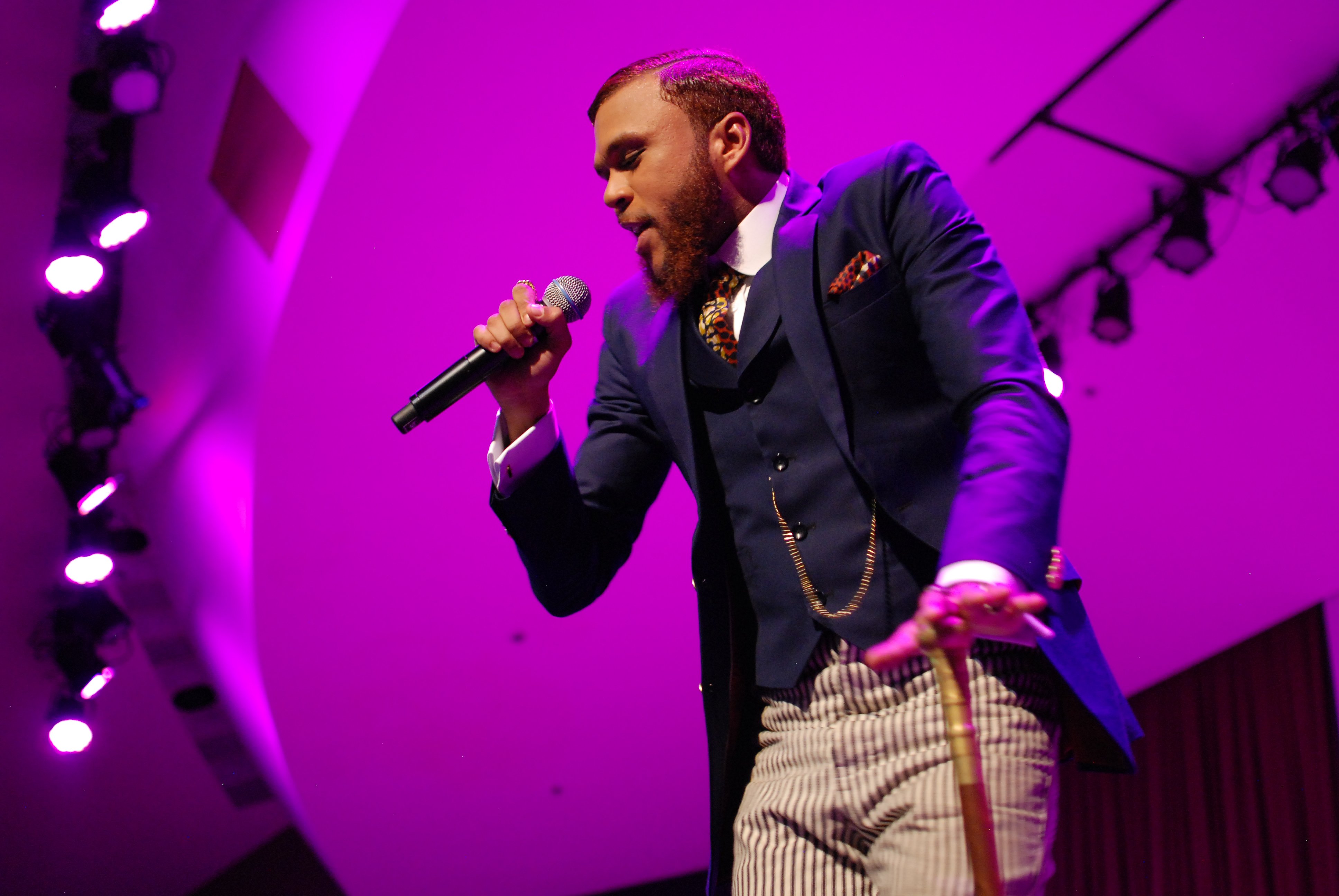This year’s Blackfest, organized by the Black Family Gathering Committee, was held on Friday night in Dinkelspiel Auditorium — a change of scenery from the event’s past outdoor venues. But the festival spirit was still there, as free admission attracted an energetic crowd from across the Bay Area for a night of poetry, singing, dancing and rapping. The lineup featured both student groups and local talents, and was headlined by up-and-coming R&B singer and Stanford alum Jidenna Mobisson ‘08.

In the past few years, Blackfest has hosted artists like Kendrick Lamar, Big Sean, Future, Wale and Ty Dolla $ign. Discounting Frost Music Festival, Stanford has a lot of trouble drawing stars to perform on campus — so how has Blackfest managed to host some of the biggest names in hip-hop? It’s all a matter of prescience: they got Kendrick just months before he blew up with “good kid, m.A.A.d city” and had Big Sean on Roble Field right before he dropped his first studio album. They’ve got the timing down pat, catching rising stars just as their momentum is carrying them to the world stage, providing top quality performances from powerhouse artists in the twilight of their pre-fame days. It will be exciting to see if Jidenna can continue the trend.
Jidenna is still far from a household name, but that may change soon — he’s already signed to Grammy-nominated R&B artist Janelle Monáe’s independent label Wondaland Records, and he seems poised for a breakout year. In anticipation of Wondaland’s upcoming compilation EP, “The Eephus,” he’s released two singles: the contemporary R&B track “Classic Man” and “Yoga,” a sexual, poppy collaboration with Monáe.
His sound isn’t much different than other chart-topping R&B singers, and his songwriting — while certainly catchy — doesn’t exactly stand out on its own, either. Instead, he seems to opt for a peacock approach through unusual dress, style and character. He’s crafted a novel image of everything a man is meant to be, the “classic man” in terms of fashion and poise. He keeps his hair combed neatly across his head, ending with a finger curl hanging over his brow and rounded off with an undercut and full beard. He holds himself with dignity and confidence and sports vibrant turn-of-the-century three-piece suits, flashy brogues and a gold-tipped cane. On stage, he moves with a high step, alternating between the support of his cane and microphone stand as he ambles with a distinct strut reminiscent of a New Orleans second-line march.

Jidenna brought all the pomp and pageantry of his persona to the stage on Friday with an energetic set of songs and stories. His performance included solemn nods to the situation in Baltimore, endearing tales of his father (a Nigerian chief and computer scientist), and enthusiastic forays into the eager crowd. The catchy refrain from “Classic Man” was a crowd-pleaser featuring boasts of fame and fortune familiar to the genre, but he also performed unreleased songs that touched on heavier topics like power and oppression, displaying an expressive range that’s crucial to any artist’s staying power.
In a word, Jidenna embodies “swank.” At least that’s how he describes it. In an interview with The Breakfast Club on Power 105.1, he explains that “swanky means classy and funky” and describes the classic man as someone “who carries himself with dignity, a certain amount of poise and discretion.” It’s clear that he has ambitions beyond making hits — he wants to introduce new color to R&B and hip-hop, to challenge the contemporary image of each genre with a dose of vintage flair and chivalry. It’s unclear whether his style will catch on — or if he’ll be as successful as some of his Blackfest predecessors — but here’s hoping.
You can contact Benjamin Sorensen at bcsoren ‘at’ stanford.edu.
